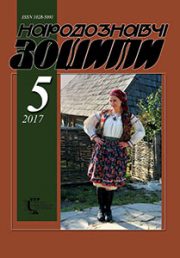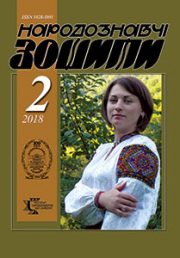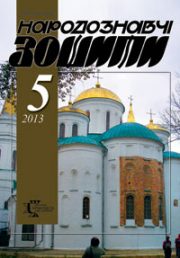The Ethnology Notebooks. 2021. № 6 (162), 1468—1473
UDK 316.267+327.8
DOI https://doi.org/10.15407/nz2021.06.1468
THE RELIGIOUS PERSECUTION IN OCCUPIED CRIMEA: PHENOMENOLOGICAL DIMENSION
SHELUKHIN Volodymyr
- ORCID ID: http://orcid.org/0000-0002-8931-8757
- Candidate of Sociological Sciences, Teaching fellow,
- Department of Social Structures
- and Social Relations, Faculty of Sociology,
- Taras Shevchenko National University of Kyiv,
- Volodymyrska str., 64/13, 01601, Kyiv, Ukraine,
- Contacts: e-mail: vashelukhin@i.ua
Abstract. The research paper explores religious persecution in Crimea, occupied by Russia. The author uses phenomenological perspective in his analysis of narrative interviews with victims of such persecution. The research was provided within the working framework of Regional Center for Human Rights. This center provides monitoring of situation with human rights and civil liberties of Ukrainian citizens in occupied Crimea. The subject of the research is experience of religious persecution. In which way victims react to such persecution? The author identifies significant motives of such reactions. It is the aim of the research. The author uses phenomenological distinction between two different types of motive: in-order-to-motive and because-motive. The results demonstrate that military occupation destructs mutuality of motives as well as natural attitude in everyday life of informants. The author argues that religious persecution under Russian occupation of Crimea not just religious discrimination. The persecution is a part of broad set of institutionalized actions and tools with a particular aim. The Russian occupying administration wants to change the identity and loyalty of Crimean population, creates preconditions for stanch incorporation of Crimea into Russia. Religious and national meanings are essentially interrelated for informants. Their forcible departure informants explain from the perspective of because-motive. At the same time, they explain undesirability of departure other members of their communities with in-order-to-motive, from the point of desirable future. The author identifies discussions that might be a subject of future research: politicization of Islam among Crimean Tatars, changing relationship between national and religious identities.
Keywords: religious persecution, motives, social action, occupied Crimea, national identity, phenomenology, natural attitude.
Received 14.09.2021
REFERENCES
- Zaiets, S., Martynkovsky, R., & Sviridova, D. Religious occupation: Oppression of the Ukrainian Orthodox Church of the Kyiv Patriarchate (Special issue). RCHR, UHGHR, CHROT, 2019. Retrieved from: https://krymbezpravil.org.ua/wp-content/uploads/2019/04/SBR_religious-occupation_in-russian.pdf (Last accessed: 20.04.2021) [in Russian].
- Andreiuk, Ye., Moiseeva, A., Kvitsynska, M., Koval, D., & Donets, A. Encyclopedia of Repressions in Crimea since occupation by Russia. Vol. II. Report. Kyiv. Crimea SOS, 2019. Retrieved from: https://krymsos.com/files/6/e/6ec448d.pdf (Last accessed: 20.04.2021) [in Ukrainian].
- Enforced disappearances in Crimea under Russian occupation 2014—2020. Kyiv. Crimea SOS, 2021. Retrieved from: https://krymsos.com/files/3/a/3a2b987.pdf (Last accessed: 20.04.2021) [in Ukrainian].
- Schutz, A., & Luckmann, T. (2004). The Structures of the Life–World. Kyiv: Ukrainskyi tsentr dukhovnoi cultury [in Ukrainian].
- Garfinkel, H. (2005). Studies in Ethnomethodology. Kyiv: Kurs [in Ukrainian].
- Shutz, A. (1962). The Problem of Social Reality: Collected Papers I. The Hague: Martinus Nijhoff [in English].
- Anderson, B (2001). Imagined communities: Reflections on the origin and spread of nationalism. Kyiv: Krytyka [in Ukrainian].







